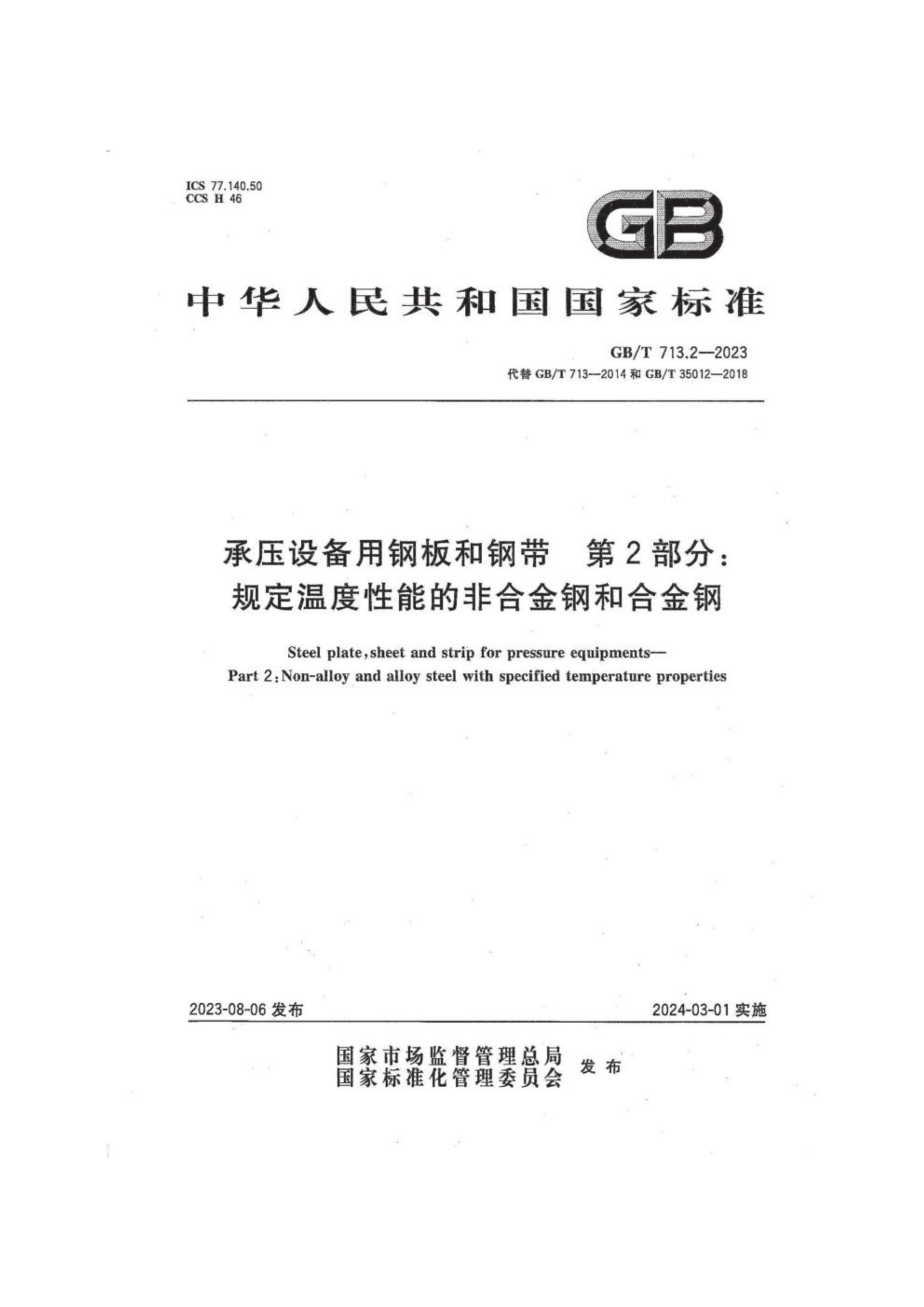GB/T 713.2-2023: Steel Plate, Sheet and Strip for Pressure Equipment - Part 2: Non-alloy and Alloy Steel with Specified Temperature Properties
This section is a core technical standard in the GB/T 713 series. Published on August 6, 2023, and effective from March 1, 2024, it supersedes GB/T 713-2014 and GB/T 35012-2018.
This standard specifies requirements for hot-rolled steel plates and strips used in pressure equipment operating at temperatures not lower than -20°C. It applies to:
Steel strips and cut-to-length plates from coils with thickness ≤25.4 mm;
Single-rolled plates with thickness 3–250 mm.
Key technical parameters include:
Chemical Composition: Q420R grade limits nitrogen content to ≤0.020% and total residual elements (Cr, Ni, Cu) to ≤0.70%.
Mechanical Properties: Defined yield strength (≥420 MPa for Q420R), tensile strength, and impact toughness requirements.
High-Temperature Performance: Enhanced specifications for Q420R and newly introduced Q460R grades.
Major Updates:
Added Q460R grade with tailored mechanical properties;
Revised high-temperature strength criteria for Q420R;
Tightened residual element controls;
Mandated delivery conditions: normalized, or normalized + tempered;
100% Ultrasonic Testing (per NB/T 47013.3) for all plates.
Aligned with GB/T 713.1-2023, this standard establishes a unified framework for pressure equipment steel manufacturing, quality assurance, and certification. It enhances product reliability for critical applications (e.g., boilers, pressure vessels) and strengthens China's competitiveness in global markets by harmonizing with international standards such as ASME and EN 10028.
Industry Impact:
Enables precise material selection for low-temperature and high-strength applications;
Promotes advanced production practices (e.g., controlled rolling, heat treatment);
Supports export-oriented steel producers through compliance with international codes.
Essential for manufacturers, inspectors, and engineers in pressure equipment design, this standard ensures safety and performance in demanding industrial environments.


